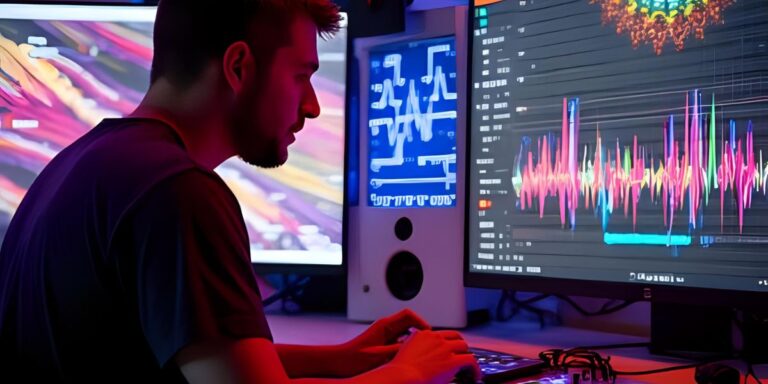The music industry is undergoing a major transformation with the increasing incorporation of AI-powered technology. Artificial intelligence has advanced significantly in recent years, and its growing presence is reshaping the way music is produced, distributed, and enjoyed. From major record labels to independent creators, AI is creating new opportunities, allowing musicians to innovate and engage with their audiences in fresh and exciting ways.
A key development in AI music technology is the creation of AI-driven tools that assist in music composition and production. These platforms enable musicians to produce songs with just a few inputs, such as genre preferences or specific stylistic choices. The AI algorithms are capable of generating complete musical compositions, from the melody to the arrangement and production elements. This advancement is particularly advantageous for independent artists who often face challenges related to limited budgets, time constraints, or technical expertise. With AI, they can now experiment with a wide variety of sounds and ideas, significantly expanding their creative possibilities and increasing their output without the need for expensive studio setups or a large team. By leveraging these AI tools, musicians can more efficiently craft professional-grade tracks, elevating their artistry and streamlining the production process.
Another area where AI is leaving a mark is in music discovery. Streaming services are integrating more advanced AI algorithms that personalize recommendations for listeners. These systems analyze users’ listening habits, moods, and preferences, creating tailored playlists and suggesting artists or genres that they might enjoy. As a result, music discovery has become more intuitive and seamless. For the listeners, it’s an experience that enhances their connection to the music, helping them find new favorites with minimal effort. For artists, AI-powered recommendation engines present the opportunity to reach wider, more diverse audiences. Independent musicians, in particular, stand to benefit from being discovered by people who might not have otherwise encountered their work.
AI’s influence is not limited to music creation and discovery. In fact, the technology is making waves in marketing, audience engagement, and even live performance. Record labels and marketing teams are using AI to predict trends, analyze audience preferences, and optimize promotional strategies. AI tools can even assist in songwriting, offering insights that were previously difficult to obtain. This enables both emerging and established artists to make more informed decisions about their work and how to present it to the world. In live performance, AI can enhance fan experiences by providing real-time data on audience reactions, allowing for more interactive and personalized shows.
While AI’s integration into the music industry is still in its early stages, its potential is immense. As AI technology continues to evolve, it is set to redefine many aspects of the industry. For musicians, AI promises a future where creativity can flourish without the usual constraints of budget or technical skill. For listeners, it creates an ever-evolving, personalized experience that keeps them connected to the music they love. As these innovations become more widely adopted, AI will play a critical role in shaping the future of music, offering exciting possibilities for both creators and fans.


